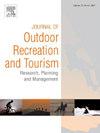Agritourism has the potential to promote socio-economic development while decreasing adverse environmental impacts. The concept received sustained scholarly interest in recent years, with attempts to link it with sustainability. However, studies highlighting the state of research and the dominant issues in agritourism remain scant. This bibliometric article closes this scholarly gap by presenting an overview of the perspectives from which scholars have approached the agritourism-sustainable development nexus. The aim is to understand the current state of research and dominant issues in the field. The article examines the number of articles on agritourism and sustainability, investigates the connections between authors and countries, and explores the dominant issues in the articles. The articles selected for analysis are identified in the Scopus database using ‘Agritourism’ OR ‘Agrotourism’ OR ‘Sustainable tourism’ as key terms. Data analysis was performed using the VOSviewer software. Content analysis was also conducted to determine the dimensions of sustainability that have ignited the most scholarly interest. The study shows that agritourism and tourism sustainability are more studied in developed than developing countries. It also shows that the economic dimension is more studied than the environmental and the social-cultural-historical dimensions. Future research may explore these sustainability dimensions to advance a more inclusive understanding of agritourism and sustainable tourism.
Firstly, the findings show that much of the enterprises that practice agritourism place much emphasis on the economic benefits accrued from the practice. While economic benefits are the target of every business, owners or managers of agritourism enterprises also need to consider the value of other equally important dimensions or needs such as environment and also the social fabric of the communities in which they operate.
Secondly, when pursued in a harmonious and balanced manner, it is these needs that can, as a collective, ensure the sustainability of their businesses. The findings also show that agritourism is a flourishing business dominated by developed countries and less pursued in developing countries. In developing countries, tourism enterprises struggling to sustain themselves can also consider providing agritourism-based services and products since evidence shows that agritourism is a promising profitable business.


